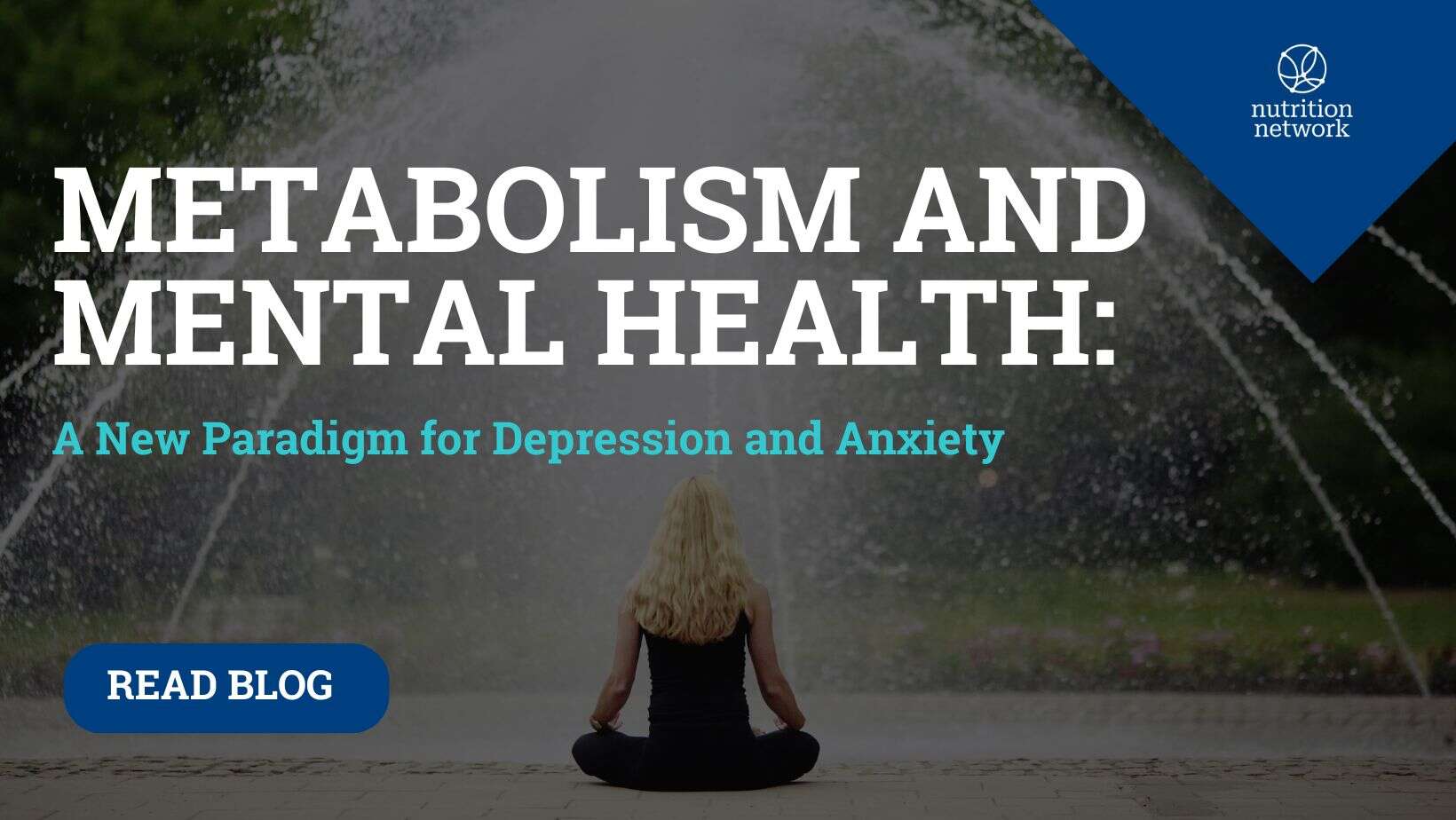Rethinking Mental Health: Are We Getting It All Wrong?
We are in the midst of a mental health crisis. Around the world, rates of depression and anxiety are not just rising, they’re exploding. The numbers are sobering: an estimated 3.8% of the global population suffers from depression and 3.4% from anxiety disorders. In some countries, like Peru and Brazil, the lifetime prevalence of severe depression or anxiety is over 30%. These conditions don’t just steal joy—they steal years. In 2019 alone, depressive disorders accounted for 578 disability-adjusted life years (DALYs) per 100,000 people.
But the crisis doesn’t end there. Conventional treatments are failing too many.
Despite a long list of evidence-based therapies psychotropic drugs, cognitive therapies, mindfulness, even electroconvulsive therapy 30% of people with major depression fail to respond to treatment. That’s nearly one-third of patients told they are “treatment-resistant.” And for anxiety, it’s no better: up to 60% remain symptomatic after first-line treatments.
Something is missing. And it might be something we’ve never truly examined in psychiatry—metabolism.
Depression and Anxiety: Not Just in Your Head
Dr. Lori Calabrese, certified Nutrition Network Practitioner, a board-certified psychiatrist and founder of Innovative Psychiatry and Points 180, isn’t afraid to challenge psychiatric orthodoxy. In her lecture, part of Nutrition Network’s trailblazing online training Metabolism and the Mind, she proposes a radical reframing: What if depression and anxiety are not just mental health disorders—but neurometabolic disorders?
“Maybe we’re just about on a new horizon and about to usher in new beginnings returning to a systemic approach, this time considering a ketogenic diet as the mechanism.”
Calabrese presents compelling biological evidence that metabolic dysfunctions—like insulin resistance, inflammation, oxidative stress, and neurotransmitter imbalances—are deeply intertwined with psychiatric conditions. In her words, “The brain is part of the body.” So why do we continue to treat it as separate?
The Science of the Brain-Body Breakdown
Let’s break down what this actually means. Mounting research shows a bi-directional relationship between depression, anxiety, and metabolic conditions like obesity, diabetes, and metabolic syndrome. In fact, a 30-year longitudinal study (the CARDIA study) confirmed that depressive symptoms predict metabolic syndrome and vice versa.
And the mechanisms behind this are no mystery:
- Cerebral glucose hypometabolism: PET scans of patients with depression show decreased glucose uptake in key brain regions, including the frontal gyrus and anterior cingulate cortex. The same goes for generalized anxiety disorder (GAD).
- Inflammation: A third of patients with major depression show elevated CRP, signaling systemic low-grade inflammation.
- Oxidative stress: Free radicals and mitochondrial dysfunction wreak havoc on brain energy systems and neurotransmitter balance.
- GABA and glutamate imbalance: Impaired GABA signaling and excess glutamate excitotoxicity contribute to anxiety and mood instability.
This is not just theory—it’s visual, measurable, biochemical dysfunction. And the answer may lie in a molecule our bodies were designed to run on: ketones.
Ketogenic Diet: A Precision Tool for Brain Recovery
Enter the ketogenic diet—a therapeutic intervention long used in epilepsy, now breaking ground in psychiatry.
“A ketogenic diet could potentially reverse all of this. Anhedonia. Apathy. Abulia. Poor energy. Poor concentration. Obesity. Insulin resistance. Depression. Anxiety. The list goes on.”
Ketones, particularly beta-hydroxybutyrate (BHB), do far more than fuel neurons. BHB reduces oxidative stress, suppresses inflammation, restores neurotransmitter balance, and increases brain-derived neurotrophic factor (BDNF)—a molecule critical for neuroplasticity and mood regulation.
More than theory, Calabrese shows that BHB:
- Reduces glutamate excitotoxicity and increases GABAergic activity
- Enhances mitochondrial energy production, leading to more ATP with less NAD+ depletion
- Improves cerebral energy metabolism even in severe, treatment-resistant depression
- Increases synaptic strength, neural regeneration, and functional brain connectivity
It’s a full metabolic reboot—for the brain.
Clinical Evidence: From Theory to Transformation
Skeptics might ask, “But where’s the evidence?” Let’s start with Calabrese’s own clinic, where she and her team implemented a well-formulated ketogenic diet in patients with severe, complex cases of depression and anxiety.
“We found complete remission of major depression and generalized anxiety disorder. Not partial improvement. Remission.”
In her 2024 case series, one patient’s anxiety plummeted within days, with binge eating disappearing almost immediately. In another case, full remission was achieved even before stable ketone levels were established—suggesting early neurochemical effects may occur independent of prolonged ketosis.
These results echo findings from other pilot studies:
- Danan et al. (2022): 100% of patients with major depression in a 12-week inpatient ketogenic trial showed significant symptom improvement.
- Needham et al. (2023): In bipolar depression, a ketogenic diet was safe, feasible, and adhered to—with mean BHB levels of 0.8 mmol/L over 12 weeks.
- Case studies: Multiple reports show complete remission of both mood disorders and metabolic conditions like type 2 diabetes.
“Her PHQ-9 went from 17 to 0 in 12 weeks. Her diabetes reversed. Her triglyceride-HDL ratio normalized. That’s a psychiatric and metabolic miracle.”
Why Haven’t We Been Doing This?
If the evidence is so strong, why hasn’t this become standard practice?
Because psychiatry still separates the mind from the body.
Most psychiatrists aren’t trained in metabolic medicine. Most nutritionists aren’t trained in psychiatric diagnostics. And patients are stuck in the middle, medicated into numbness while their mitochondria continue to malfunction.
We also lack standardized protocols, consistent ketone monitoring, and cohesive interdisciplinary teams. But these are solvable problems—and that’s exactly what Nutrition Network’s Metabolism and the Mind training addresses.
Introducing: Metabolism and the Mind
This revolutionary training brings together metabolic experts, psychiatrists, and nutrition practitioners to deliver a unified, systems-based model of mental health care.
Through lectures from pioneers like Dr. Lori Calabrese, you’ll learn how to:
- Rethink psychiatric disorders through a metabolic lens
- Implement ketogenic metabolic therapies in real-world practice
- Monitor biomarkers like BHB, CRP, and BDNF
- Create personalized protocols for depression, anxiety, eating disorders, and more
- Understand the clinical trials and mechanisms behind ketone-based interventions
Whether you’re a physician, therapist, dietitian, or coach—this course equips you to transform care for patients whose lives are hanging in the balance.
Beyond Symptom Management: Real Recovery
Traditional psychiatry has become a revolving door. Patients cycle through medications, therapies, and hospitalizations—yet never truly get well.
It’s time to stop managing symptoms and start restoring systems.
“Let not our exuberance be our undoing. But let not our caution hold us back either.”
The ketogenic diet isn’t for everyone—but for many, it could be the missing piece. As Calabrese puts it, this is not just about symptom reduction—it’s about full remission, improved quality of life, and a sense of empowerment for both patient and practitioner.
And it’s already happening in clinics like hers.
Acknowledging Trailblazers & Foundations Forging the Metabolic Psychiatry Breakthrough
Beyond pioneering physicians like Dr. Lori Calabrese, several other visionaries and foundations are revolutionizing the mental health landscape with a metabolism-first approach.
🌟 The Baszucki Foundation & Metabolic Mind
The Baszucki Family—Roblox co-founder David Baszucki, his wife Jan Ellison Baszucki, and their son Matthew—have launched Metabolic Mind, a philanthropic arm of Baszucki Group focused on metabolic psychiatry. They envision “a future in which metabolic health of every individual is assessed and addressed with evidence-based interventions, leading to improved mental and physical health for all” YouTube+7Metabolic Mind+7Metabolic Mind+7.
Metabolic Mind brings together leaders like Drs. Lori Calabrese, Chris Palmer, Georgia Ede, and Shebani Sethi—not just to explore the science, but to fund clinical trials, develop clinician resources, and build patient tools like THINK+SMART, which offers nutritional strategies rooted in metabolic science.
Dr. Shebani Sethi – Building Stanford’s Metabolic Psychiatry
Dr. Shebani Sethi, trained in obesity medicine and psychiatry at Stanford, leads their Metabolic Psychiatry Clinic and coined the term “metabolic psychiatry” to describe her integrated approach. A recent Stanford pilot found that nearly half of serious mental illness patients achieved remission on a ketogenic diet within just four months.
Dr. Georgia Ede – Nutrition Pioneer and author of Change your Diet, Change you Mind
A clinical advisor at Metabolic Mind, Dr. Georgia Ede, M.D., championed the term “whole-person doctor” and authored Change Your Diet, Change Your Mind. She maintains a global directory connecting patients with clinicians trained in ketogenic and metabolic therapies.
Dr. Chris Palmer – Author of Brain Energy
Harvard-trained psychiatrist Dr. Chris Palmer, also a clinical advisor at Metabolic Mind, is reshaping psychiatric narratives with his bestselling book Brain Energy: The Metabolic Theory of Mental Illness. He builds on the concept that mitochondrial dysfunction lies at the heart of mental disorders—advocating a shift from “shotgun” pharmaceutical strategies to metabolic-based treatment pathways.
Other trailblazing healthcare professionals
Trailblazing dietitians, nutritionists, nurses, coaches and psychologists around the world are also helping to redefine the future of mental healthcare through metabolic strategies. Psychologist, Erin Bellamy and keto coach, Nicole Laurent have brought critical lived-experience research to light, co-authoring a powerful thematic analysis in Frontiers in Nutrition that explored how a non-calorie-restricted ketogenic diet improved cognition, energy, resilience, and psychological well-being in individuals with depressive symptoms—many describing the shift as “a lifestyle.” While pioneering registered dietitians around the world – Denise Potter, Beth Zupec-Kania, Michelle Hurn, Amanda Cini and Tamzyn Murphy – are also championing therapeutic ketogenic diets in neurological and psychiatric disorders via education and in their clinical practices, to stabilize mental health and reverse metabolic dysfunction. Addiction specialists, like Bitten Jonsson are also spearheading metabolic therapies for the treatment of addiction, particularly sugar addiction.
A Call to Action: It’s Time to Learn the Language of Metabolism
We need more data, more trials, more protocols—but most of all, we need more practitioners who understand the power of nutrition as a psychiatric intervention.
If you’re ready to step beyond symptom suppression and into system restoration…
If you’re ready to learn how to use ketones as precision medicine…
If you believe it’s time for psychiatry to evolve…
Then now is the time to join the movement.
Enroll in Metabolism and the Mind and be part of the future of mental health.









